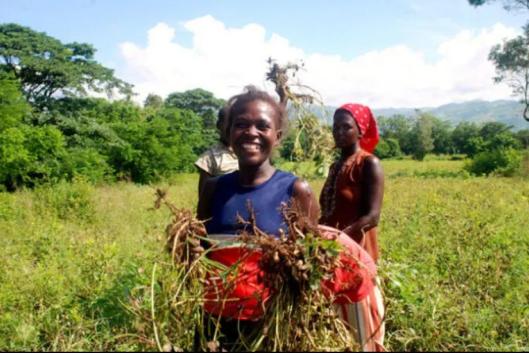Today, many big companies have programmes aimed at emphasizing the equality of opportunities offered to women. These are companies that are concerned about showing the importance they give to incorporating women in their business strategies. This concern seems to represent a politically correct stance in a time when, fortunately, there are a growing number of policies in many countries aimed specifically at women, as a way of reducing the inequality they have historically faced. These problems of inequality are far from resolved, however. For example, there are numerous studies which demonstrate that when it comes to formal employment, women continue to earn significantly lower salaries than men, even when they are doing the same work. There are also still very few women to be found in top management positions.
In the meantime, the neoliberal capitalist system, of which the biggest icons are large corporations, is increasingly transforming everything on earth into merchandise, including women. This can be seen just by watching the television commercials on the large privately owned networks that form part of the so-called mass media. And then there are the big companies that have adopted some sort of specific policy for women workers and yet continue grabbing land and forests, at an increasingly rapid pace, in order to exploit more mines, drill more oil, establish more industrial tree plantations or build more large-scale hydroelectric dams on rivers. These companies always cause major impacts on the lives of communities, and above all on the lives of women. This is because women depend specifically and heavily on the forests and rivers – as a number of the articles in this bulletin demonstrate. The arrival of destructive projects in their territories radically changes their lives. However, in most cases, their stories remain unheard, unless someone decides to listen to and record what these women have to say.
In addition to these stories, there is an impact that is even less visible but must be acknowledged and denounced: the sexual exploitation of women connected to mega projects like dam construction in the Amazon region. These dams do not only represent the violation of thousands of hectares of forest that end up underwater. Their construction also represents violations and aggression against women who, for lack of other options, are obliged to place their bodies at the disposal of the thousands of labourers who work day and night on these construction projects, and are also victims of exploitation. It is very difficult for these women to escape from this situation or report the abuses that they suffer, because they are usually coerced or threatened to keep them from doing so. Women who are subjected to these conditions by force lose all of their freedom.
It is important that companies offer equal employment opportunities, but the logic of the capitalist system is not aimed at seeking equality. For example, as the capitalist system continues its expansion over the rainforests with its large-scale operations and mega-projects, it seeks to – and succeeds in – benefiting a small few, to the detriment of a great many others, especially women. As a result, this system ends up reinforcing the patriarchal system. The consequences for women are increased poverty, greater inequality, and less freedom.
But there is more to the story than losses and negative impacts. Women are fighting back, and this needs to be highlighted as well. This is what has inspired us to produce this March bulletin to celebrate March 8, International Women’s Day, by sharing stories of women fighting for freedom and for justice, defending their territories and their forests with incredible strength. Across Latin America, Africa and Asia, more and more women are speaking out, organizing and bearing witness to what is happening in their communities with their forests, and they are making demands.
We have always sought to reinforce the important role of women in all struggles, because we know that the active participation of women is needed to make them everyone’s struggles. It gives us great satisfaction to dedicate this 200th issue of the WRM Bulletin to the struggle of women.
